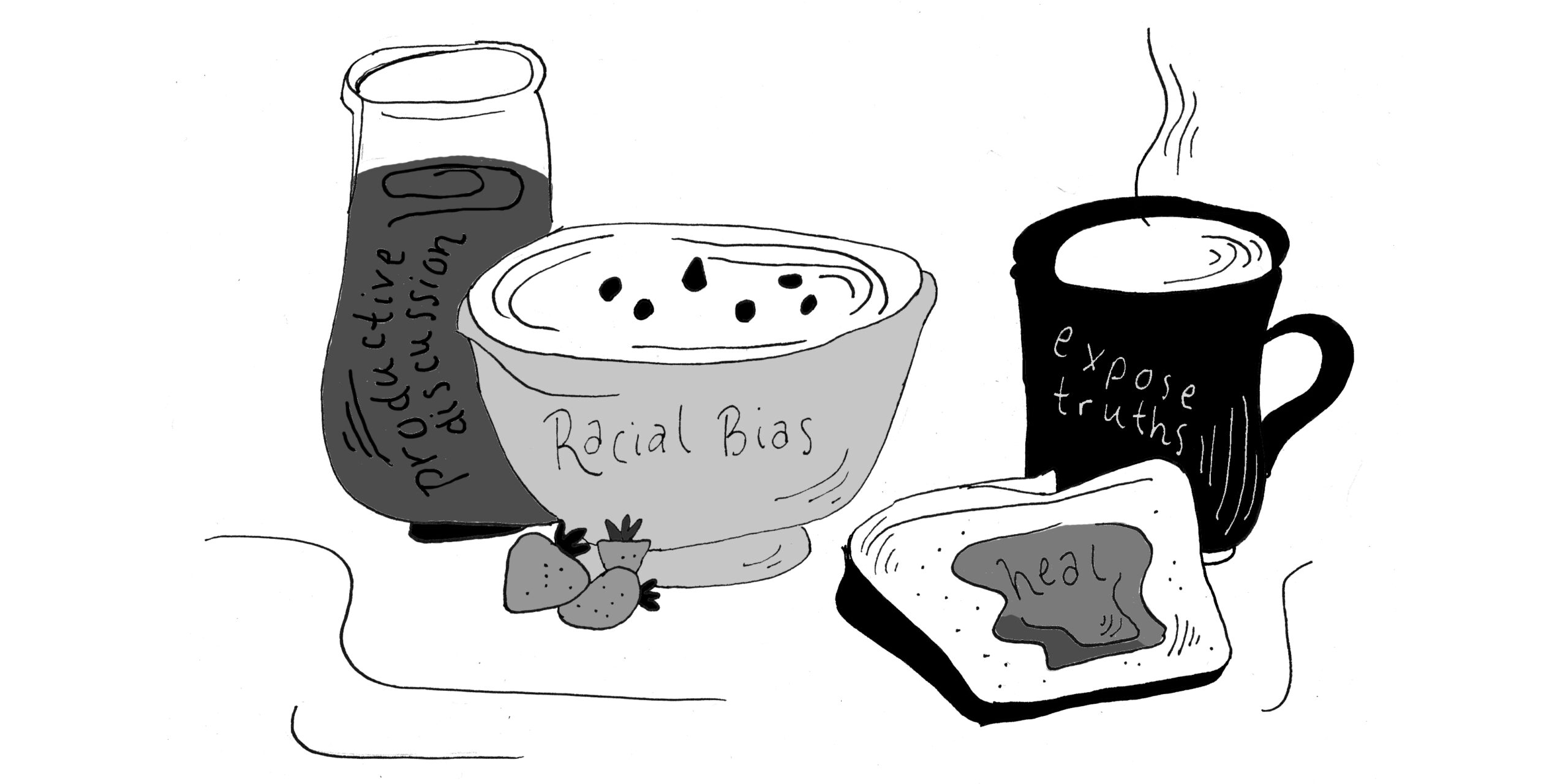Discussions from brunch: on the Offer of the College and its unfulfilled potential
March 2, 2018
 This
piece represents the opinion of the author
.
This
piece represents the opinion of the author
.
“To make hosts of friends… / Who are to be leaders in all walks of life; / And cooperate with others for common ends”
– The Offer of the College
If you haven’t seen Kevin Hernandez’s op-ed in the Orient from last week, stop now and go read it. If you have, I’m hoping to clear up any ambiguities.
Last fall, a captain of the sailing team, Nora Cullen ’18, shared with me that the sailing team was facing some challenges. Since the “gangster” party, half the team had graduated and, like the rest of campus, it had not done the best job of normalizing discussions about difference and preserving the lessons learned from past mistakes. In an attempt to foster a team culture that embraced critical engagement and awareness about race and racism, Nora and others on the team became more proactive by encouraging education and discussion. When I spoke with Nora about the sailing team’s struggles, it quickly became apparent to us that this was not a sailing team issue, but an issue for Bowdoin College at large. In fact, there’s Bowdoin-specific research to support that claim in the honors thesis of Pamela Zabala ’17, which found that “Bowdoin has had, on average, an incident of racial bias every 3.5 years since 1964.” Nora and I ended our discussion that afternoon sobered by our observation that Bowdoin was still very much caught in this cycle but passionate about the potential to break it.
That passion materialized and grew into something pretty exciting. By late January, eight seniors—Nora Cullen, Rebkah Tesfamariam, Harrison Hawk, Dana Williams, Kevin Hernandez, Daniel Buckman, Sarah Trenton and I—with varying identities and perspectives about the cultural appropriation events came together with a mission: engage in a public, moderated discussion about the “gangster” party, “tequila” party, their aftermath and the long-term consequences of how everything played out. The goals were clear: (1) provide a collective retelling of the incidents from our differing perspectives, (2) model productive discussion, (3) preserve knowledge and expose truths and (4) begin to heal the wounds that have been left to fester and infect the College for too long.
As students, we have the responsibility to embed the practice of critically engaging with diversity and other contemporary issues into our culture. The students who came together felt that this could be our contribution to this effort, and we sought to promote a healthier culture in which Bowdoin students would grapple with the inevitable adversities of living in a diverse community. After all, the cultural appropriation incidents of my sophomore year were painful but pale in comparison to the traumatically damaging ways that the incidents were handled and left unresolved. We are all to blame for this, but some more than others.
The day our idea died was painful. I couldn’t help but feel that if those who were so opposed to us actually knew what we were up to they might appreciate our work. For nearly a month, our group had met each Saturday morning, over brunch, for about two hours of preparation. Each week we shared our stories with one another and built the trust necessary to display our healing in front of an entire campus. Our brunches were characterized by vulnerable discussion and genuine compassion, facilitated by two students who were uninvolved with either event. For sure, animosities were resurrected and pain resurfaced. But more than anything, we found common ground and understanding. In former classmates who I labeled ‘racists,’ I found friendship. In the eyes of people who had hurt me, I saw anguish and resentment born from sleepless nights of grappling with the pain they had caused others. We were a year and a half late, but we were healing. That made it all the more devastating when some members of our class felt they had to stop us. They never even gave it a chance. They just broke us.
I’ve given up on this group of students who are so determined to erase themselves from the narrative. We were never interested in shaming them, but the unintended consequence of their action is that everyone will now know that in 2015 and still today, they are the reason why we are not having a roundtable discussion in pursuit of a better tomorrow. I wish we could’ve talked it out, not for our own sake, but for everyone who will come after our class and the junior class. I wish younger classes didn’t have such dismal “leadership” to look up to. Our experience should not be their experience. That is not the Offer of the College.
There is much to be done. For now, I’ll settle for brunch.
Justin Weathers is a member of the Class of 2018.


Comments
Before submitting a comment, please review our comment policy. Some key points from the policy: